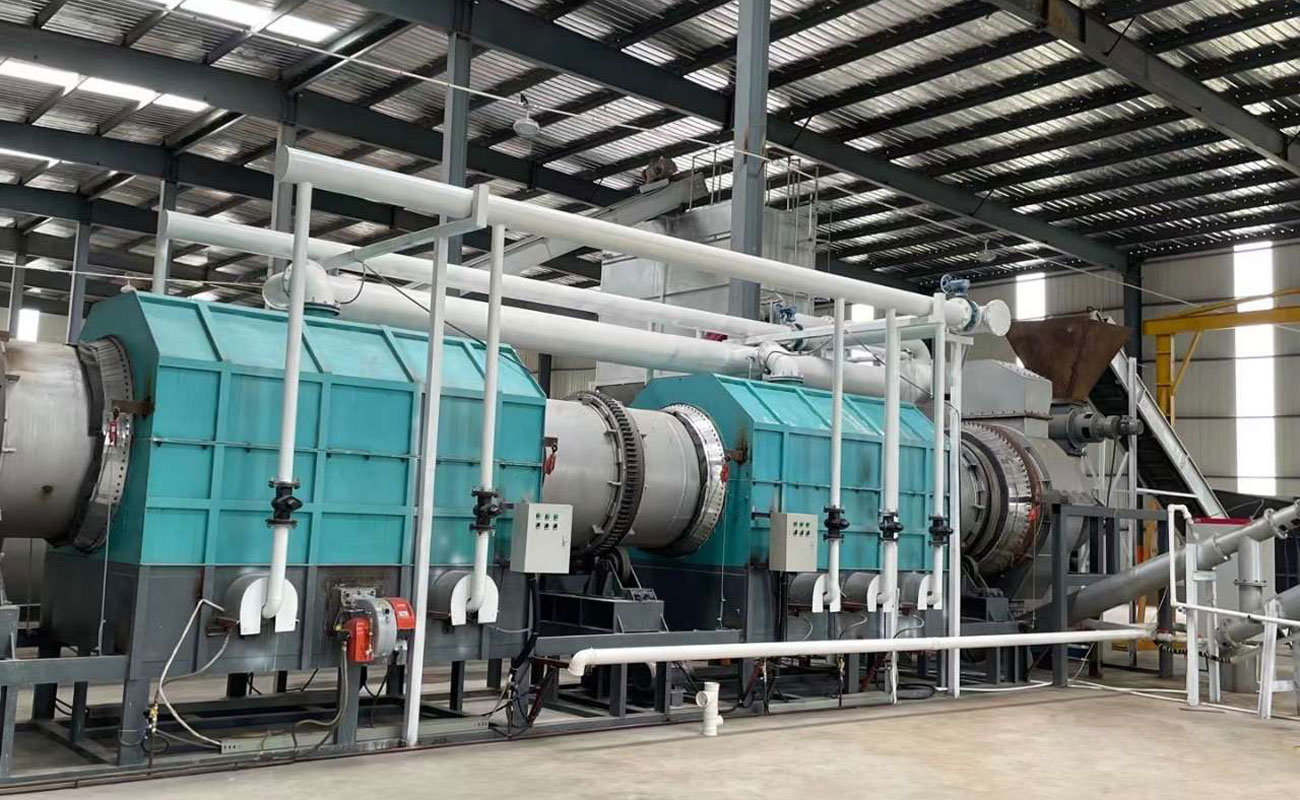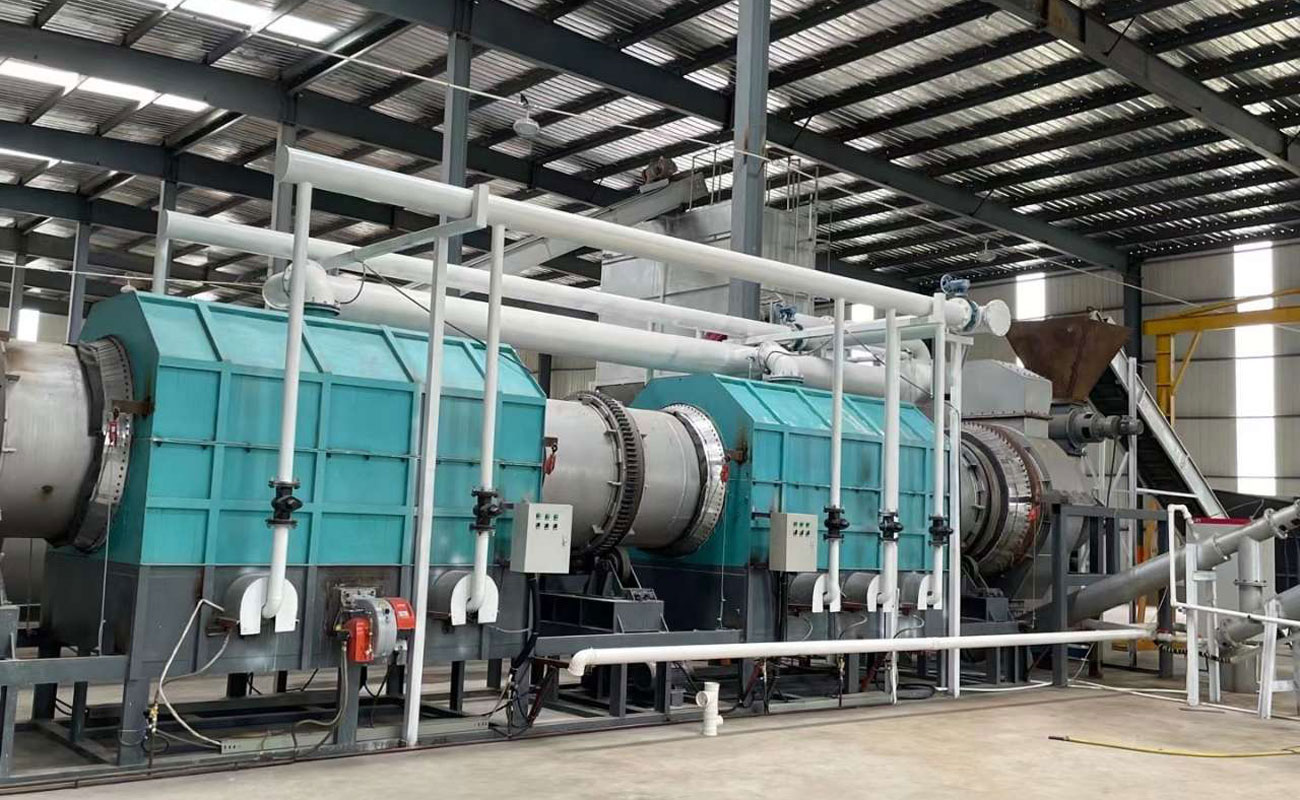In the realm of sustainable agriculture, biochar production equipment stands as a catalyst for transformative change. Biochar, a porous charcoal-like substance, has emerged as a game-changer in the quest for improved soil fertility and environmental sustainability. By owning biochar production equipment, individuals and organizations can unlock a multitude of benefits that extend far beyond conventional farming practices.

Enhancing Soil Fertility and Nutrient Retention
Biochar production equipment plays a pivotal role in bolstering soil fertility and optimizing nutrient retention. With its unique structure and properties, biochar acts as a soil amendment that positively influences soil health. As biochar is introduced into the soil, it creates a network of channels and spaces, enhancing soil structure. This facilitates improved aeration, root penetration, and the activity of essential microorganisms.
Moreover, biochar’s porous nature allows it to act as a reservoir for essential nutrients. Nutrient-rich organic matter, such as nitrogen, phosphorus, and potassium, readily adheres to the biochar surface, preventing leaching and ensuring their availability to plants over an extended period. By owning biochar production equipment, farmers and gardeners can harness the power of nutrient retention and cultivate thriving ecosystems.
Carbon Sequestration and Climate Change Mitigation
In the battle against climate change, biochar production equipment assumes a significant role. Biochar, produced through the pyrolysis of biomass, serves as a formidable ally in carbon sequestration. As plants grow, they absorb carbon dioxide from the atmosphere through photosynthesis. By converting biomass into biochar and incorporating it into the soil, the stored carbon becomes sequestered for extended periods, ranging from hundreds to thousands of years.
This process effectively mitigates the release of carbon dioxide, a major greenhouse gas, into the atmosphere. By owning biochar production equipment, individuals contribute to climate change mitigation, playing their part in building a more sustainable and resilient future.
Soil Moisture Regulation and Drought Resistance
Water scarcity and drought pose significant challenges in agriculture. However, biochar pyrolysis equipment provides a practical solution for addressing these issues. Biochar’s innate ability to regulate soil moisture levels is a boon for farmers facing unpredictable weather patterns and extended dry spells.
The porous structure of biochar serves as a sponge, capable of absorbing and retaining water. As plants require moisture, the biochar releases water gradually, ensuring a steady supply to their roots. This mechanism enhances water holding capacity in the soil, reducing water loss through evaporation and runoff.
By incorporating biochar into their farming practices, farmers can cultivate more resilient crops that exhibit enhanced drought resistance. The ownership of biochar production equipment empowers individuals to overcome the challenges posed by water scarcity and safeguard their agricultural endeavors.
Minimizing Environmental Pollution
Environmental pollution, particularly soil and water contamination, poses significant threats to ecosystems and human health. However, biomass pyrolysis plant acts as a guardian against such pollution, offering a sustainable solution.
Biochar possesses remarkable properties that allow it to immobilize and reduce the leaching of contaminants. When biochar is applied to soil, it acts as a filter, trapping harmful substances such as heavy metals and organic pollutants. This prevents them from entering groundwater sources or being taken up by plants, effectively mitigating the risk of environmental pollution.
By owning biochar production equipment, individuals become stewards of environmental protection, actively contributing to the remediation of contaminated soils and the preservation of vital water resources.
Economic and Practical Benefits
Beyond the environmental advantages, owning biochar production equipment presents numerous economic and practical benefits. Biochar production can be tailored to various biomass feedstocks, including agricultural residues, forestry waste, and organic materials. This versatility opens up new revenue streams for farmers and waste management facilities.
By producing biochar from these abundant and often underutilized resources, individuals can generate additional income through the sale of biochar products. Furthermore, biochar proves to be a cost-effective soil amendment. Its long-lasting effects reduce the reliance on synthetic fertilizers, leading to substantial cost savings for agricultural operations.
With charcoal making machine in their possession, individuals can not only contribute to sustainable agriculture but also create economic opportunities that foster a greener and more prosperous future.
In conclusion, the importance of owning biochar production equipment cannot be overstated. From enhancing soil fertility and nutrient retention to facilitating carbon sequestration, regulating soil moisture, minimizing pollution, and reaping economic benefits, biochar serves as a catalyst for sustainable agriculture and environmental stewardship. By embracing biochar production equipment, individuals take significant strides toward a future where soil health and ecological balance are prioritized, ensuring the well-being of both current and future generations.